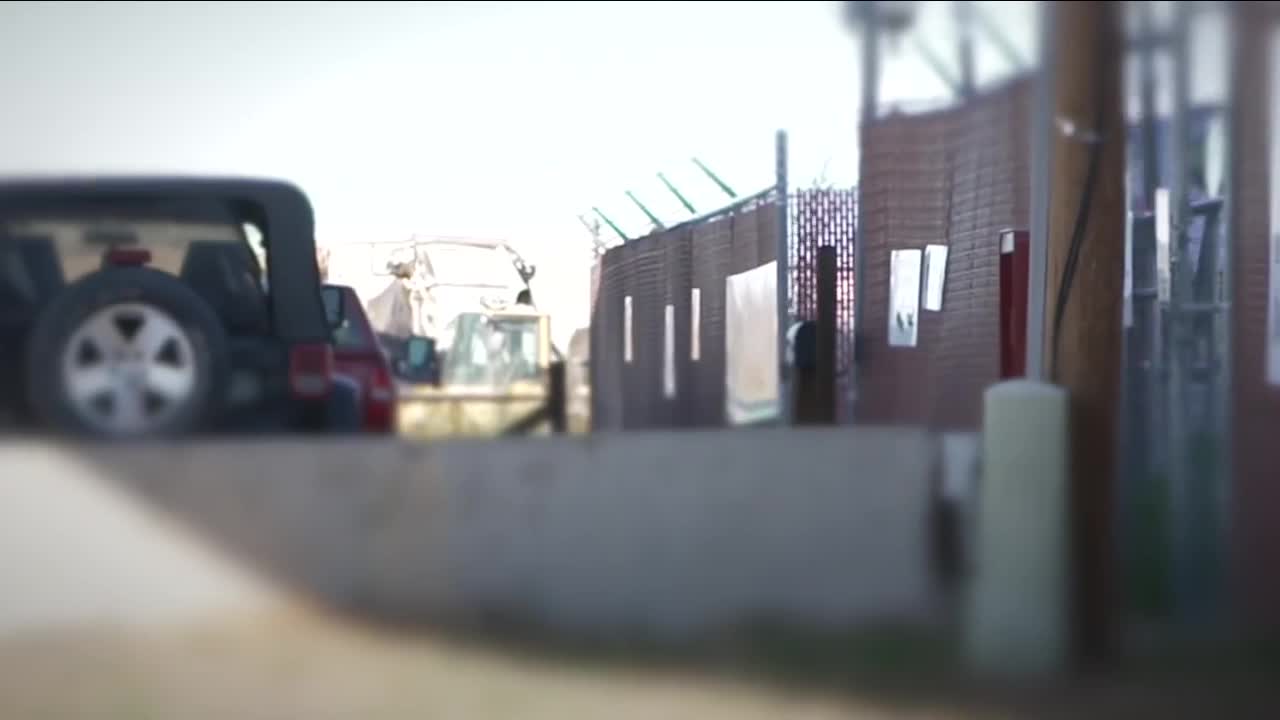DENVER — A new towing bill would require property owners to pay upfront for tows — instead of car owners — in an effort to strengthen towing rules for Colorado consumers.
The Towing Carrier Regulation Bill (HB24-1051) was recently introduced at the state capitol and would require background checks for tow operators, give the Public Utilities Commission the authority to pull licenses for specific violations and put the onus on parking lot owners on private property to foot the bill for tows and car storage fees for up to 30 days.
“Consumers are really in a disadvantaged position in terms of when their vehicle gets towed, if it gets towed in the first place,” state Rep. Andrew Boesenecker (D-Larimer County) said.
Boesenecker is sponsoring the bill to upend how the towing industry works in Colorado and "return the industry to how it has historically operated."
“I think what we would see in this legislation is a complete righting of the ship and ultimately reinforcing some of that best practice that did not happen this way historically,” he said.
Denver7 Investigates has produced multiple reports regarding predatory towing in Colorado and showcased how at least one company is part of a vertical integration model where a parent company owns the parking lot, tow company and the auction house that sells unclaimed towed vehicles.
RELATED: Impound Empire: Wyatts Towing, partners connected to many aspects of towing in Colorado
One tow company in that model, Wyatts Towing, recently settled with the Colorado Attorney General’s Office and agreed to pay $1 million to the state. Some of that money will go to pay back people who were improperly towed.
Tashaira Williams, who lives in a townhome at the North Lincoln Park Homes in Denver, said she was towed twice by Wyatts last year from her parking lot because she was unable to get a permit from management. She was towed in December when she parked in the lot to unload groceries.
When she went to get her car, she said she was charged more than $300 and didn’t know about the Towing Bill of Rights law, passed in 2022, that said she was entitled to pick up her car for a maximum of $60.
“They never gave me an option,” she said. “They just said come with that money or (I’m not) going to get my car.”
Boesenecker pointed to previous stories like these in the media as one reason for introducing the new bill.
“Certainly consumer advocate groups have been pointing to what I would understand to be a predatory towing issue in our state for some time,” he said.
The bill faces opposition from groups such as the Colorado Apartment Association, which released a statement that said in part, “While we acknowledge the importance of consumer protection and fair towing practices, CAA believes that this particular approach raises several unintended consequences that warrant careful consideration. … This lack of accountability could result in a disregard for parking laws and regulations, further exacerbating parking-related issues within our neighborhoods.”
Denver7 Investigates reached out to the attorney for Wyatts Towing, but has not received a response.
FULL STATEMENT FROM COLORADO APARTMENT ASSOCIATION:
"The Colorado Apartment Association (CAA) is concerned about the potential consequences of the proposed towing legislation that has been brought to our attention through preliminary draft language. While the bill has not been officially introduced, the CAA believes it is crucial to address certain aspects of the draft that could have significant implications for property owners, residents, and the community at large.
The specific provision under consideration mandates property owners to pay for towing improperly parked vehicles, thereby shifting the burden from the driver to the property owner. While we acknowledge the importance of consumer protection and fair towing practices, CAA believes that this particular approach raises several unintended consequences that warrant careful consideration.
One of the primary concerns is that property owners may be less inclined to enforce parking regulations due to the financial burden associated with towing. This could lead to a surge in unauthorized parking, creating chaos in our communities and compromising the quality of life for law-abiding residents.
Moreover, by absolving drivers of the financial responsibility for towing, there is a risk that individuals who park illegally may face no consequences. This lack of accountability could result in a disregard for parking laws and regulations, further exacerbating parking-related issues within our neighborhoods.
Consider the hypothetical scenario where a law-abiding resident finds themselves blocked in due to someone else's illegal parking. Under the proposed legislation, the innocent party would be forced to initiate the towing process and bear the financial burden, even though they have done nothing wrong. Or, one of our residents comes home late at night after a long day, finding someone else in their designated parking space. This proposed legislation places an undue burden on people who follow the rules, rather than those breaking them.
Additionally, the financial strain imposed on property owners could lead to an increase in housing costs as they seek to offset the expenses associated with towing services. This, in turn, may impact the affordability of housing in our community, an outcome that contradicts the overarching goal of promoting accessible and reasonably priced housing options.
The Colorado Apartment Association strongly urges policymakers to carefully reconsider the implications of this proposed towing legislation. We believe that a balanced approach, which takes into account the interests of both property owners and drivers, is essential for fostering a community that upholds the principles of fairness, accountability, and mutual respect."





